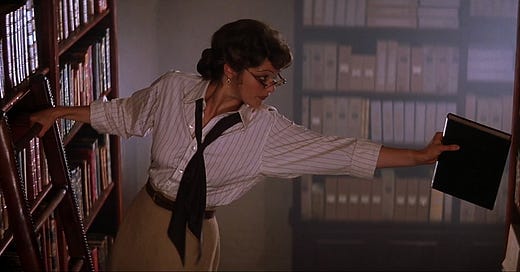‘A poem is a smuggling of something back from the otherworld, a prime bit of shoplifting where you get something out the door before the buzzer goes off.’
– Nuala Ni Dhomhnaill, RTE 1, July 1995
When I think about connectedness as a means of survival, I often find myself between two forces: 1) my love, compassion, empathy for others, and 2) my desire to be left alone.
In a tremendous sense, intimate relationships are vital for us to thrive as individuals. The trick is, we’re not great at it. The older we get, the more complicated things become. We’re continually building new stories on old stories, stacking reinvented, discovered, hidden, and denied selves. The trouble with being seen is how we’re perceived. You can’t control the lens others look through. I only want to be seen in certain light types, and even then - only from certain angles.
Everything, I mean everything, is an act of translation. [Robert] Frost said that poetry lies in and with what’s lost and gained during that act. Language, currently at least, is the most compelling way I share and convey meaning, and I marvel at how we stumble and soar in our use of it. My closest friends and I are incredibly diligent in stating not only that we love each other - but the why and the how behind that love, which is essential to me and affirms our sincere, chosen, familial (Anam Cara) connection. But all-to-often, “I love you” becomes synonymous with “good-bye,” like at the end of a phone call or something we say without sincere attention. So that’s wonderful that we say it, but not so beautiful when it becomes the default.
It’s a lifelong struggle to stay truly present, in the “here and now, together” in our connections, and I think that poetry helps us do that. I mean - it certainly helps me - I don’t know about everyone else. In any case, it’s the work I’m dually obsessed with and called to - discovering how to survive better through language.
I love how pieces of that called work find their right places, how sometimes nothing will click with a set of text until it flickers across someone else’s phone or gets tucked into a loved one’s jacket liner, email, or the margins of a used Mary Oliver book.
Sometimes it’s the same thing as walking into an N.A. or A.A. meeting and hearing someone else brave enough to challenge the static state of PTSD and self-image that are a result of retelling “how bad things were at rock bottom.” I’m not interested in qualifying myself by continually reliving and retelling my worst traumas. That’s not freedom; that’s fear. I’m butting heads with pretty much every [literature board] editor on the topic. But - I know, in my bones, there’s a better formula for living outside of that terror. Recovery, at least for me, isn’t some suspended animation chamber that’s just staving off the inevitable. If it and therapy weren’t transformative, I wouldn’t be doing them.
I suppose we do the best we can. And by that, I mean we do the best we can - striving to be gentle yet rigorous with our complicated souls; being synonymously patient and authoritative as we move through our inevitable failings, to rejoice when we get something right, and then to keep on working. Each of us is in charge of our solace, redemption, growth - no matter the teachers, beloveds, or higher power(s) we’ve had.
When we attach that understanding with the simple belief that we are inextricably part of something infinitely more significant [the basis of the human experience is “this is not all that we are”], it becomes absurd [and it does feel absurd!] to despair. If I pray for anything these days, it’s to be infected with a purposeful deliberateness that defies paralysis and refuses to fade away.
It’s not a linear process, of course, not a one-time epiphany and then WHAM immediate transcendence - although that’d be ideal. It’s daily work, sometimes minute to minute work, to stay in that knowing, surrender, diligence, and connectedness and act from those places.
If there’s a life work, I’d say that’s it.
I know it’s mine.


